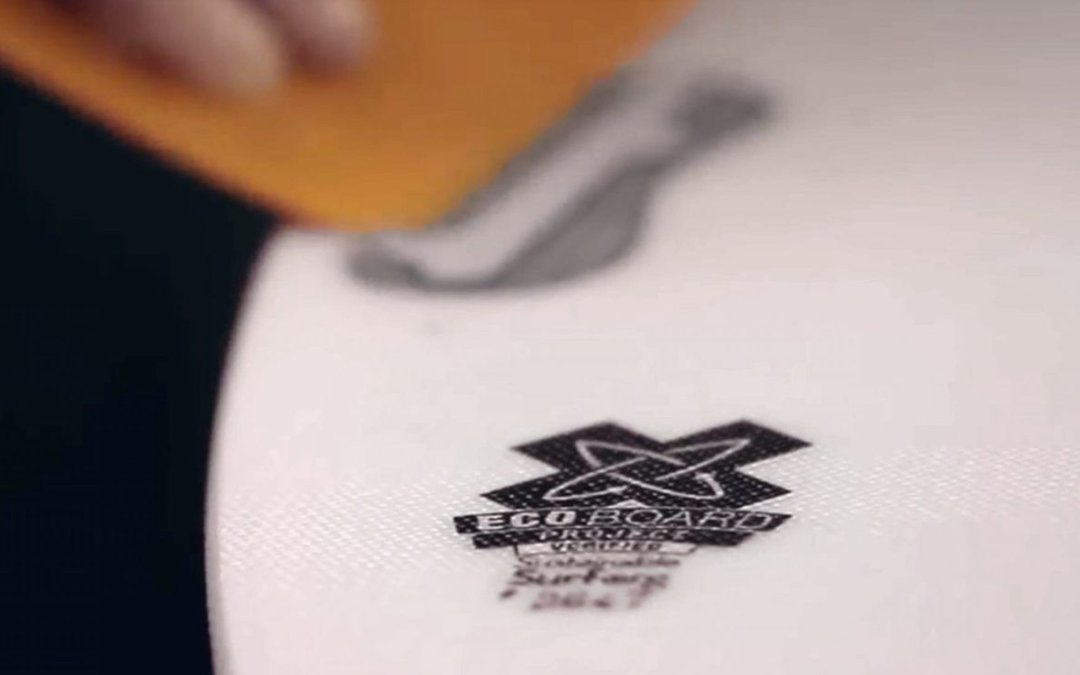We’ve said it before – you can’t SUP or surf without a board. You can take away literally everything else – boardshorts, sunglasses, flip flops and surfing lives on. But take away the basic wave sliding vehicle, and surf culture simply collapses.
When surfing started to spread globally in the early 20th century, boards were made from locally grown, non-toxic materials, just like the boards that ancient Polynesians rode. If they ever broke, you could reuse or recycle the material for something else, or let it simply biodegrade back into the earth. From an environmental perspective – those ancient boards were close to perfect – albeit a little challenging to ride.
The bulk of modern boards, like many other modern plastic products, are largely dependent on using non-renewable petroleum-based chemicals. We’ve actually flipped the original ideas of what a board should be, and therefore the original values of surfing culture too. Simply put, if our SUPs and surfboards are the basic definers our surfing culture, then we are by definition: “unsustainable.”
The ECO BOARD Vision
This is a loud wake up call for the board-riding community to see and discuss the problems we face, so that we can ensure a long term future for the sport and a pristine healthy ocean environment. While we know that the average SUP or surfboard as an object is not the largest contributor to an ocean-lover’s negative environmental impact (energy use from driving or flying are much bigger), we at Sustainable Surf think that this conversation can be best started by focusing our attention on the most elemental and iconic object in all of surfing history; the simple Polynesian invention that started it all. The surfboard.
Here is our simple vision: if we can change our SUPs and surfboards to physically embody the ideals of sustainability, then we can change ourselves too. We will learn from that process, and can then apply that experience to tackle much larger issues that we confront (like reducing energy and water use, conserving biodiversity, etc.) If we take these steps now, we can still ensure a long, sustainable future for board-riding sports, as well as for our amazing watery planet that makes it all possible.

A New Generation of ECO BOARDS
Fortunately, we do have the power, tools and ability to change our ways and get back to the original “sustainable spirit” of the first surfboards (and canoes for that matter), without giving up any of the “performance” improvements that modern materials have given to the culture of surfing, since petro-chemicals were first widely introduced in the 1950s. ECO BOARDS using a new generation of materials and processes have reduced carbon footprints, use (and reuse) renewable, recycled and recyclable inputs, and reduced toxicity within the surfboard manufacturing process.

That’s a win for the environment, and importantly for surfers – a win for our oceans. And, believe it or not – a win for professional athletes. That’s right, remember Zane Schweitzer’s win at pumping Cloud Break during the ISA World’s? He was riding a Starboard ECO BOARD.
So how do we know about the environmental impact that these high-performance ECOBOARDS (made using bio-resin and/or a recycled foam core) are making? Science of course! In 2016, Sustainable Surf completed the first in-depth lifecycle study of a more sustainable surfboard. The LCA showed a 30% reduction in the carbon footprint of an ECO BOARD and a significant reduction in carcinogenic chemicals, when using materials approved by the ECO BOARD Project. The study also identified some huge opportunities for board manufacturers to reduce waste, use renewable energy and source more sustainable materials.
What does the future hold?
Materials and manufacturing processes are improving with each new release. Starboard’s resin supplier has increased the bio-percentage of its resin formulations and the ultimate goal is to produce a 100% plant-based resin. Alternative materials are also being used in laminates, handles and plugs, and paddles fins and other hardware are shifting to recycled and plant-based resins.
SUPs and surfboards of the future will be just as sustainable as those made and used by the ancients. Material inputs will be renewable, recycled or reused, they will be sturdy (yet user friendly) and recyclable or compostable at the end of their useful life.
Sound like a distant dream? It’s not. This future is just around the corner. Connora Resins has already produced a recyclable resin and the expanded polystyrene in Starboard’s boards is already recyclable. Starboard is also working hard on new technology to further reduce the environmental impact of their boards using advanced renewable materials. Definitely watch this space for more exciting developments.







